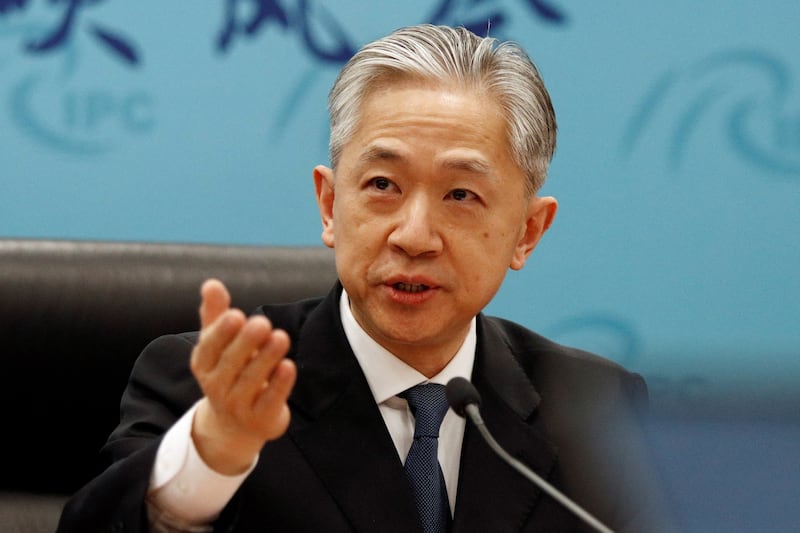Fragmentation of the world economy into two competing blocs supporting the United States and China could reduce global economic output by 7% by increasing the cost of trade, International Monetary Fund Managing Director Kristalina Georgieva said on Tuesday.
In an interview with Christiane Amanpour on CNN International, Georgieva warned against governments overcooking national security concerns, even as she acknowledged the “dramatic consequences” for supply chains caused by COVID and the war in Ukraine.
“What it means is that we will see supply chains extended, with more links than are necessary, adding to costs,” she said. “The result would be, for ordinary people, what they buy in the store is more expensive.”
“We already see a gravitation of countries towards each other in separate blocs,” she said, noting that it is “the rivalry between the U.S. and China that is more prominent in economic terms.”
IMF simulations showed “quite dramatic” consequences from the worst-case future scenarios, she said, adding that the world was already bearing some of the costs of trade fragmentation.
Some goods would always be more cheaply produced in one country than others, she said, so if governments “go willy-nilly in fragmenting the world economy” in pursuit of security, costs were inevitable.
“We can get all the way up to losing 7% of global GDP,” she said. “To put it in context, what is 7% of global GDP? This is like France and Germany disappearing from the economic map of the world.”
Solidarity forever
Chinese Foreign Ministry spokesman Wang Wenbin said Beijing opposed the trend away from global free trade, which has been spearheaded by American and European leaders concerned about the economic and national security risks of overreliance on China.

European Commission President Ursula von der Leyen in March last year introduced the concept of " de-risking" supply chains away from China – as opposed to "decoupling" – and the idea was subsequently adopted with gusto by U.S. Treasury Secretary Janet Yellen.
Both say that severing trade with China is impossible, but that they cannot risk relying solely on the country for many key goods, given the lessons of the COVID pandemic and Beijing's willingness to suddenly cut off trade seemingly due to political grievances.
But Wenbin said such claims were a facade for protectionism.
“What’s needed most is solidarity, and what should be avoided most is fragmentation,” he said, labeling the concept of “de-risking” supply chains as no different to “trade war, tech war or decoupling.”
“They are all essentially designed to politicize trade issues and be used as weapons to perpetuate a certain country’s primacy, hold back emerging markets and developing countries in their development efforts, and deprive 7 billion people of the right to a better life.”
National security
The U.S. State Department did not respond to a request for comment. However, American officials have for the past year argued that certain " small yard, high fence" limits on trade with China are necessary.
Besides promoting the "de-risking" of global supply chains to provide alternative sources of low-cost manufacturing to China, such as India and Vietnam, the Biden administration has over the past 18 months also introduced bans on the sale of advanced microchips to China.
U.S. leaders say the chips are being used to modernize China's military with artificial intelligence capabilities and therefore represent threat to national security, while Beijing has responded by accusing Washington of "protectionism" and a "Cold War mentality."

But Commerce Secretary Gina Raimondo has said the restrictions are limited, with most consumer-grade chips unaffected, for example. She also said last year that trade with China in most goods, such as " coffee and beauty aids," continues to flourish out of the media limelight.
Georgieva said despite her warning, she remained hopeful 2024 would be less eventful than recent years, and called on world leaders to “rationally” compete but otherwise edge back toward cooperating.
Edited by Malcolm Foster.
